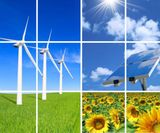Albanian power rates for business users and households by 1 January
Adv. Lorenc Gordani, PhD, interview at the Energy-Est.com N° 22, January 2015
Published: January 22, 2015
As of 1 January electricity became more expensive for consumers in Albania. The rates went up for households, but also for business consumers where the price increase was based on the level of connection, rather than consumption.
“On December 25, Albanian Power Regulator (ERE) announced that the parliament approved the decision upon which, starting from 1 January 2015 households will start paying 9.5 lek [0.07 EUR] per every kWh they spend. The previous paying scheme predicted that householders who consumed less than 300 kWh of electricity paid 7.7 lek [0.06] per kWh and 13.5 lek [0.10 EUR] per kWh for electricity above that,” Dr Lorenc Gordani, Legal Energy Market Advisor at ACERC (Albanian Centre for Energy Regulation and Conservation) told Market Player.
Dr Gordani went on to explain the changes that occurred in regards to business users tariff. “ERE also announced that businesses that use 35kV electricity will pay 9.5 lek [0.07 EUR] per kWh, businesses that use 20, 10, and 6 kV electricity will pay 11 lek [0.08 EUR] per kWh (except bakeries – 7.1 L [0.05 EUR] / kWh) and those using 0.4 kV electricity will pay 14 lek [0.10 EUR] per kWh (except bakeries – 7.1 L / kWh).”
Albanian industry representatives argued that rise of power prices for business consumers is wrong and will affect national economy in a long run. As one of the arguments they stated that network loses amount to over a third of electricity produced in the country and that the price increase is a wrong tactic aimed at financial recovery of public supply operator.
Dr Gordani explained that the reform of energy sector was followed by many polemics and debates between the ruling party and the opposition, arguing that the increase of electrical energy was unfair and would impoverish Albanian citizens more and more. “The Albanian Government says that the reform on electrical energy system will bring justice, wealth and electrical energy saving. A few days ago a Decisions of the Council of Ministers that foresees compensating an amount of 16 million USD that will be distributed to 203.928 families for the removal of the protective category 300 kWh was made.”
“In my opinion restructuring of the energy fee without making it burden to citizens is rather hard job, but taking it to fair parameters is above all a contribution to our future, a contribution to investments in the energy system and energy security. Moreover, the reform implementation was necessary in order to take a 150 ml USD loan from World Bank,” Dr Gordani concluded.
However, there are some other factors in play when it comes to evaluating the electricity pricing. Dr Gordani said that the government will introduce the new formula for the purchase price of electricity produced by a private hydropower plant built through a number of concessionary agreements, aiming to cut the costs for the state-owned Albania Power Corporation (KESh). “The new formula will be based on the average price of the Hungarian electricity exchange (HUPX) plus a bonus of 10% and is expected to be about 30% lower. In other words, the selling price (ALL per kWh) equals the average price for the respective year on HUPX for electrical energy in euro cents per kWh multiplied by the 1.1 coefficient),” Dr Gordani explained.
Dr Gordani said that Albania has issued 164 concession meant to build 444 small and mid-size hydropower plants. Some of the new utilities are already connected to the grid, while others are in the construction phase. “As a result, private production reached 0.748 TWh this year and is expected to grow to 0.92 TWh in 2015.”
However, the debts for energy offtake from the private producers have been cumulating over the last year and the process of covering the debts was initiated last month. “Albanian Energy Corporation has started the process of paying the debts to the small electrical energy producer plants, accumulated since February 2014. During the last days of December 2014 the KESh has liquidated an amount of 11 ml USD to small electrical energy plants, but there are payments yet to be made since the total amount of the debt is 60 ml USD. As predicted, the KESh will liquidate the entire amount by April 2015,” Dr Gordani said.
Note: Energy-Est.com is for subscribers only, then for a direct consulting of the article can be find the extract of the interview in the here Pdf link.
The network of the ACERC partners, supporters and sponsors include among others
For more about visit the dedicate section

















